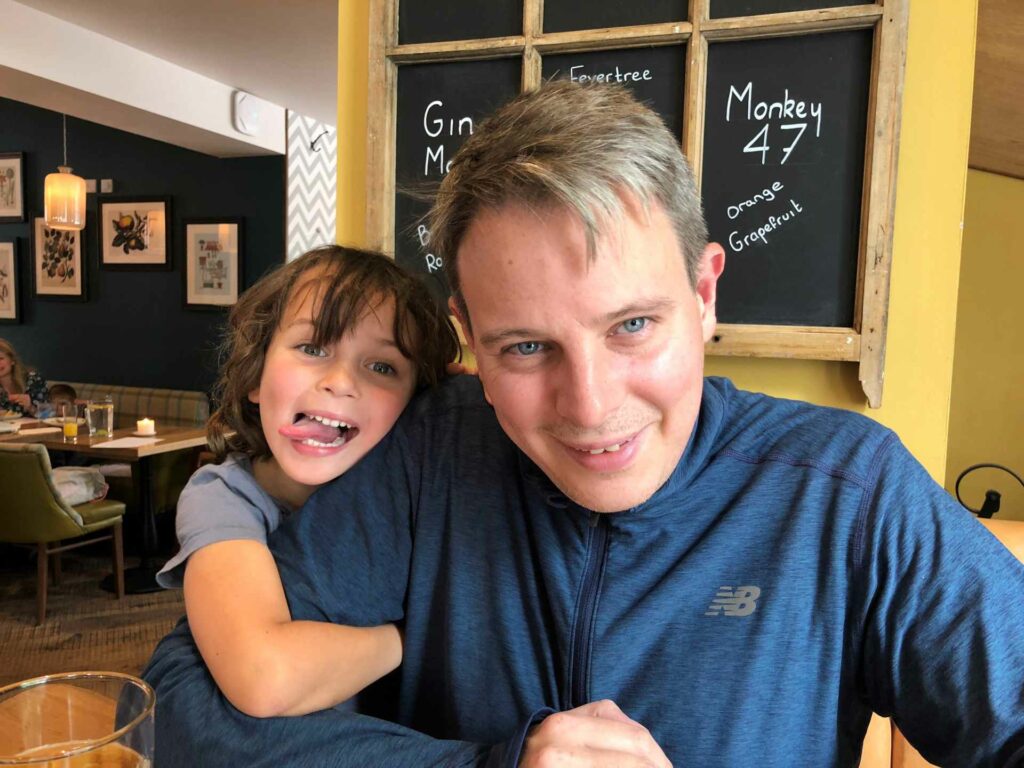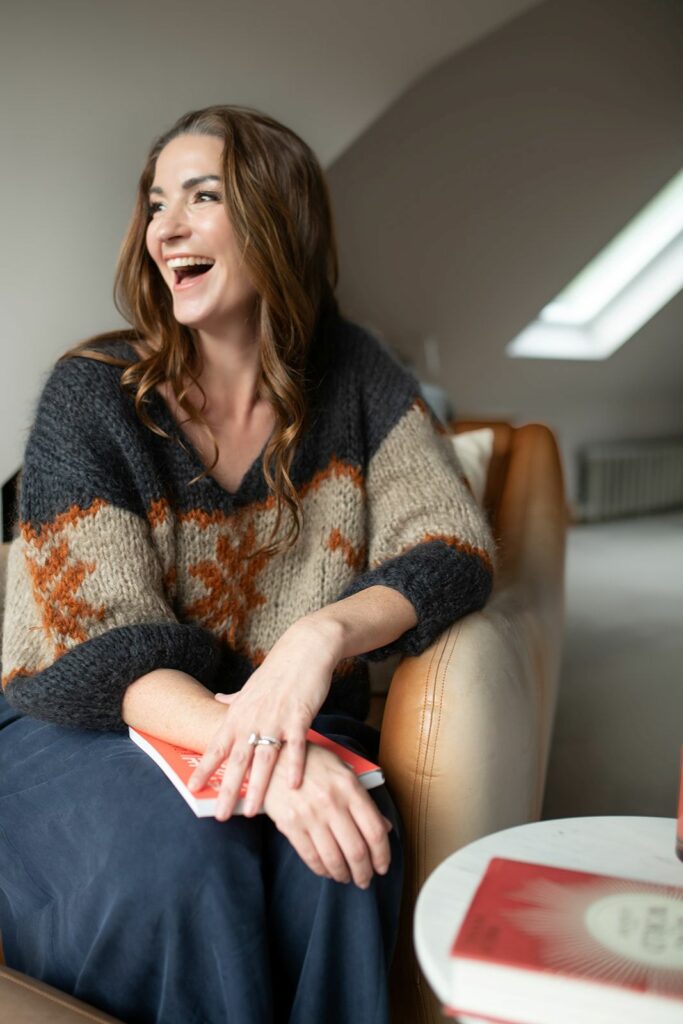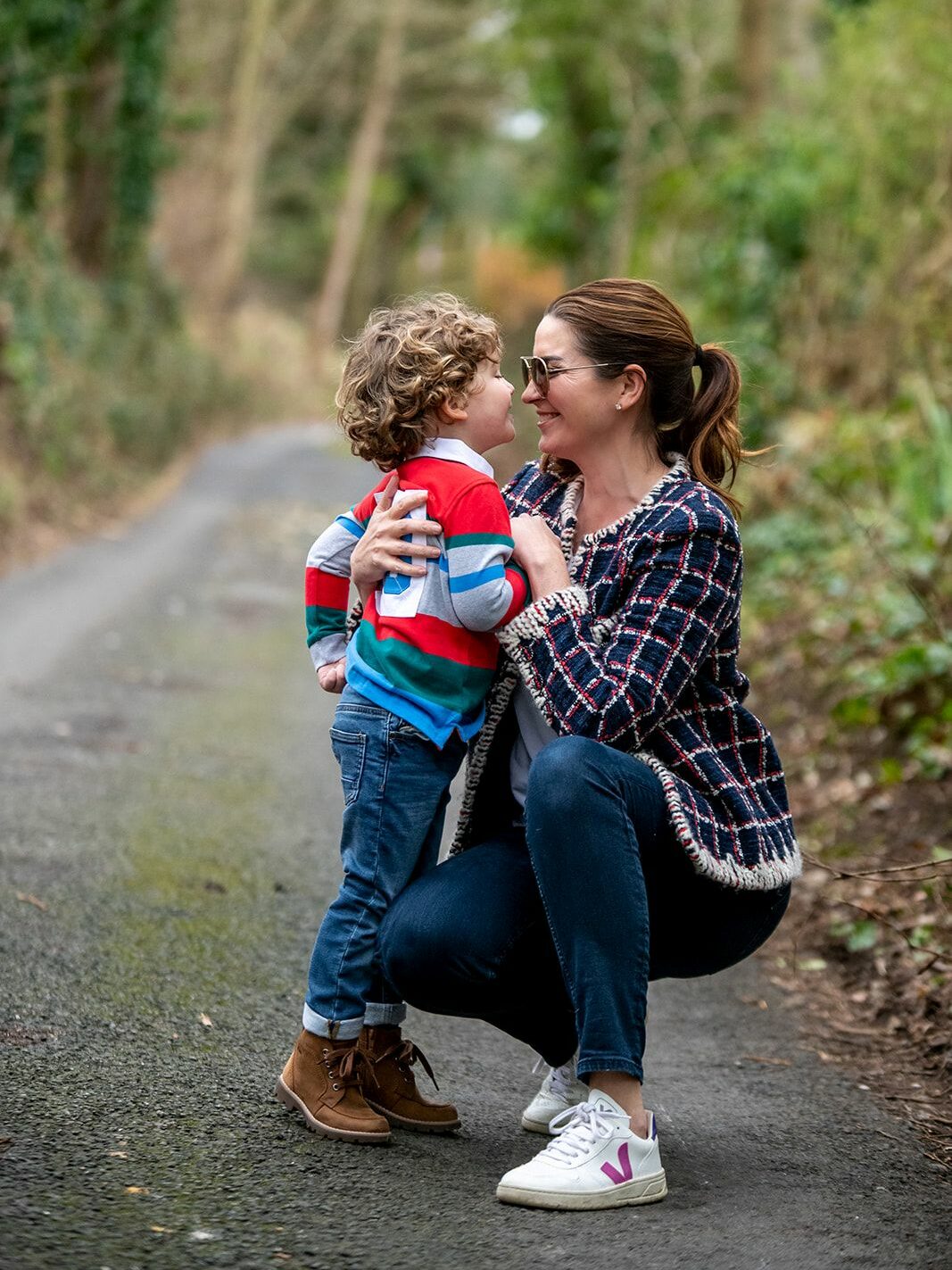Standard Chartered executives share journeys as LGBTQ+ allies
In partnership with myGwork

MyGwork recently caught up with Mark Bailey and Alison Higgins, Executive Sponsors of SC Pride, at Standard Chartered’s global employee resource group (ERG) for LGBTQ+ colleagues and allies… Mark and Alison candidly share their experiences with the LGBTQ+ community, discussing the evolution of their support -shaped by family, friendships, and workplaces.
Please tell us a bit about your career journey.
Mark Bailey: My career has always been in finance. At 13, on our way to a football match, my uncle suggested I should be a Chief Financial Officer (CFO). His point being that every boardroom tends to have an accountant, and I was good at maths. The FTSE 100 was a glamorous financial update on the news at the time and so my quest began. To become the CFO of a FTSE 100 company. I have not reached my destination yet, I may never reach it, but I can say hand on heart that I love my current role as the CFO of Corporate and Investment Banking at Standard Chartered. And I have been lucky to have met some amazing people on the way who have helped me develop in a professional sense.
Alison Higgins: I’m currently the Global Head of Control for Markets and the Head of Markets for UK, Europe and Americas at Standard Chartered. I knew from the age of 14/15 that I wanted to be a trader, although I didn’t really have any clue what that actually entailed. Nonetheless, I did my work experience in my University holidays on the LIFFE (London International Financial Future and Options Exchange) floor, which was one of the last open outcry floors in London. After I graduated, I moved to Singapore and, through social networking (think more pub social than Meta), got a junior role on a trading floor. That gave me some great exposure to trading G10 (top most traded currencies) and some brilliant secondments in Tokyo and Zurich. After about nine years I then jumped at an opportunity to move to New York to help rebuild our short date dollar desk.
After three years in NYC, I headed back to London before relocating again to follow my husband to Abu Dhabi where I ran trading for a local bank. Nine year later, and with a young family, we decided to move back to the UK where I reached a crossroads in my career: what next? Try something completely different that would enhance my career in the longer term, or stay in trading? It was meeting my current boss that made the decision relatively easy, as it was important to me to work for someone who saw my skill set and wanted to leverage that to fix problems. This is when I took on the Global Head of Controls role, which is very different to trading.
Can you tell me a bit about your childhood – where did you grow up; did you have any hobbies?
Mark: I grew up in the north of England. My father was a printer, and a preacher at a local church at the weekend; my mum was a teacher and also led Sunday school. I had a deeply religious upbringing – church four times a week, no TV in the house, women not allowed to cut hair or put on trousers and boys were not allowed to wear shorts. Fortunately, the no-shorts rule was broken by me. My dad, an ex-professional footballer, looked the other way at that rule as he had passed his love of sports to me.

I love team sports and had no idea at the time that the skill of communicating without barriers in a high-pressure environment with a definitive outcome was a life lesson that would help me immensely within banking. Only looking back now do I realise the good fortune that was bestowed on me as a boy. I grew up in a world where as long as you went to school/university and got good grades then you would get a good job. If you were sick, then the free health care in the UK would look after you. The deck was massively stacked in my favour. The fact I had a little bit of adversity in being the odd kid in the school was also a massive positive longer term; being a CFO is not a popularity contest.
Alison: I grew up in Hertfordshire, the middle of three children of Irish parents. My brothers and I went to a small catholic primary school where we had grown up with everyone, via the church, and it was only when we went into the local state school that I realised that not everyone was in fact Catholic! My mum was a nurse, and my dad worked in housing for Camden council, so we didn’t have a lot of spare cash growing up, but I was well supported by our extended family who had emigrated to the UK.
I also loved sport growing up. I played all sorts but really found my place with netball, helped by the fact I’m 5’11”. Sport has held a major place in my world since I was very young and I’m blessed that my parents pushed us to learn to swim, learn judo, ballet and then supported Saturday fixtures, traipsing around the country playing netball (or rugby in my brothers’ cases). To Mark’s point, I think team sports are so importing in learning discipline, resilience, communication, confidence and leadership, and I missed netball when I moved to NYC and retired from the game.
Can you share your personal journey with the LGBTQ+ community?
Mark: My home life as a kid was not about tolerance. The Church had a view that gay people were wrong per the laws of the Bible. When I went to university and when I moved to London, I quickly realised that what I had been told as a kid was wrong. People who didn’t go to church or people from an LBGTQ+ background were just people like me. Those same people that I had been taught were in the wrong were, and still are, some of the kindest, funniest and amazing people that I have ever met. Given my parents’ choice of religion, I had a minor taste of what it’s like to feel like the odd one out at school,. I am forever grateful to the captain of our school football team who was my friend and someone I still count as a friend today. He didn’t care that I wasn’t cool, he just cared that I was good enough to play alongside him and he could see that I was a good kid and accepted me for who I was.
My journey is nothing compared to every LBGTQ+ person I have ever met. If I can be that friend to them who helps and listens, then I have done some good in this life.
Alison: The first gay person I ever knew was my cousin who had moved to England, as it was easier for him to be himself in the UK than in a small town in Ireland back in the early 90s.I thought it was so sad that he’d had to leave his town just to be himself but, looking back, no one in my enormous Irish Catholic family blinked an eye as far as I knew . My cousin just had a boyfriend and that was that.
Much later, my family experienced another cousin’s journey with their gender identity and, whilst there was certainly more conversation, the overwhelming feeling has always been that it must have been very difficult for them and that hopefully this change would help them find peace and happiness.
I’ve seen friends dealing with different levels of cultural acceptance and being more themselves outside of the office than they feel is possible for them inside. This has always made me feel somewhat of an ally but, as a female in finance through the 00s, I also really understood that mask in the office.
What has been a standout moment in your career so far?
Mark: One Saturday morning, I met my current boss at a hotel in Singapore and he sat me down and told me I was going to be next CFO of CIB. The moment I got that job, I felt like my ability to do good for the Bank multiplied. A few weeks later, the SC Pride team asked me if I would like to apply to be a Pride sponsor; and you know how that turned out! I have met some amazing people with such inspirational stories. Life is not fair, but the very best people I know went through tough times – pressure makes diamonds, and I have met people who are fighting for a cause that is worthy and just. If I can use my influence so that the Bank becomes a better place than when I found it, then I will have my moment.
Alison: Getting promoted to Global Head of Trading (at a previous organisation) the same week I found out I was pregnant with my first child. We’d been through a takeover and we’d all had to interview for our jobs, I interviewed for my boss’s boss’s job and got it. Three of my colleagues went into the Head of Markets and said they’d resign if I was made the boss and there were lots of grumbles. It wasn’t the easiest of starts into a new role, but I focused on my work, proved them wrong and was also blessed with a beautiful daughter nine months later.
How does Standard Chartered strive for inclusivity and provide an open space for marginalised communities?
Mark: The introduction of equalised parental leave, irrespective of how a child has come to join the family, was a great a start. As we step into 2025, Alison and I are looking to empower our Pride ERG members and lift participation and engagement across the organisation. If every LGBTQ+ person in Standard Chartered knows that we exist and that they have a network of allies who care about them, then we know that we have done some good.

We also want to effect some more fundamental changes by focusing on hiring, compensation practices and creating pathways for LGBTQ+ people. It’s critical that sponsorship and mentorship be put in place to help guide and steer this talent so that we maximise the possible career pathways for any underrepresented community. The metric of measurement is not so important at this moment. The fact we don’t have enough senior representation of LGBTQ+ talent is a problem for us both and we want to address that. If 10% of the world identify as LGBTQ+ then we believe 10% of our senior management should be in this category too.
Alison: In an organisation with such a global network it is not easy to get there for everyone, but we are surely trying. Mark and I are aligned in how to get to the next level. We have the backing from senior management to really make a difference and many of the employee network global sponsors sit on the Group Management Team, which lends enormous weight to continuing to evolve the work. This year, we want to raise engagement with the Pride network and increase the number of allies who can support the creation of that open and safe space for our LGBTQ+ community.
We also need to work together across our employee networks to raise the bar, be that in recruiting, using simple tools to ensure gender neutral language; in our legal approach to different markets where we are present; or in the benefits we offer to our people. Achieving consistency there is a challenge we are determined to overcome.
Beyond the LBGTQ+ community, we are focused on leveraging the good work that the SC Pride team has done to lift the profile of other minority groups that need help and greater profile. If we can take the lessons and wins from Pride and extend them to other groups, then we have not only improved the lives of LBGTQ+ individuals but others too.
Throughout your career, have you noticed any developments in attitudes regarding the importance of diversity and inclusion?
Mark: Pockets of change are still needed. Some boy’s club behavior and inappropriate remarks about women still survive to this day. What is clear is that inclusion is important, and you have to spend time investing in it to achieve the benefits that come from diversity. The general trend has been one for the better. Attitudes are changing but it takes time, and I want to speed that timeline up for employees of the Bank. We can make our organisation a safe place where people can bring their whole self to work and are embraced for it.

Alison: As some of the old attitudes move under the surface, you see these amazing people really stand up and literally put their money where their mouth is to foster change. It is clear a lot of people understand that it is not tolerable to be a bigot in the workplace and more people call out the microaggressions that can still make work an uncomfortable place for those impacted. I do think it’s disappointing that society hasn’t moved farther and faster, as it really shouldn’t be that hard to just try to be kind to other people. We’re sitting in a precarious position right now with fear levels high and that makes it even more difficult for underrepresented, and often marginalised, communities – but that just makes this work we’re doing, this loud use of whatever voice we have, that much more important.
What immediate improvements would you like to see being made for LGBTQ+ equality in the future – both in the workplace, and wider society?
Mark: At Standard Chartered, I think the agenda of lifting participation, raising awareness and creating career pathways is critical. In wider society we need to strive for a world of tolerance and moderation. When people can feel like they can be themselves, as long as it does no harm to themselves or others, then we have achieved our goals.
Alison: The most powerfully transformative conversations I’ve witnessed are when a safe space is created, without judgement. I’ve sat in rooms and watched people struggle to articulate their question because they are afraid they’ll get the language wrong and be labelled homophobic when what they are trying to do is understand what they should do differently, or what they should do better to make their teams happier at work and in life.
The Pride team has done a truly fantastic job of opening arms to encourage conversation and understanding. As incredibly difficult as that may be, it works. The more people who understand that they should call out micro-aggressions and why, the more hope there is that we can hand over a more tolerant society to our children and theirs.
If I could wave a magic wand, I would like equal legal rights to exist for everyone, everywhere, with no differentiation and no need for there to be a conversation or justification, just acceptance that we are all the same.
Standard Chartered is a proud partner of myGwork, the LGBTQ+ business community. Find out more about job opportunities at Standard Chartered.
